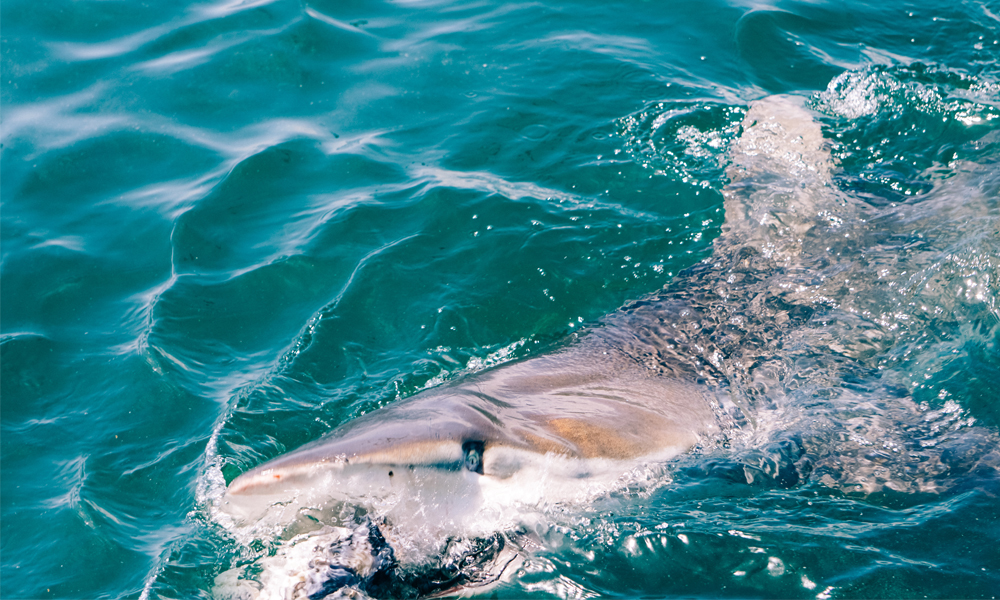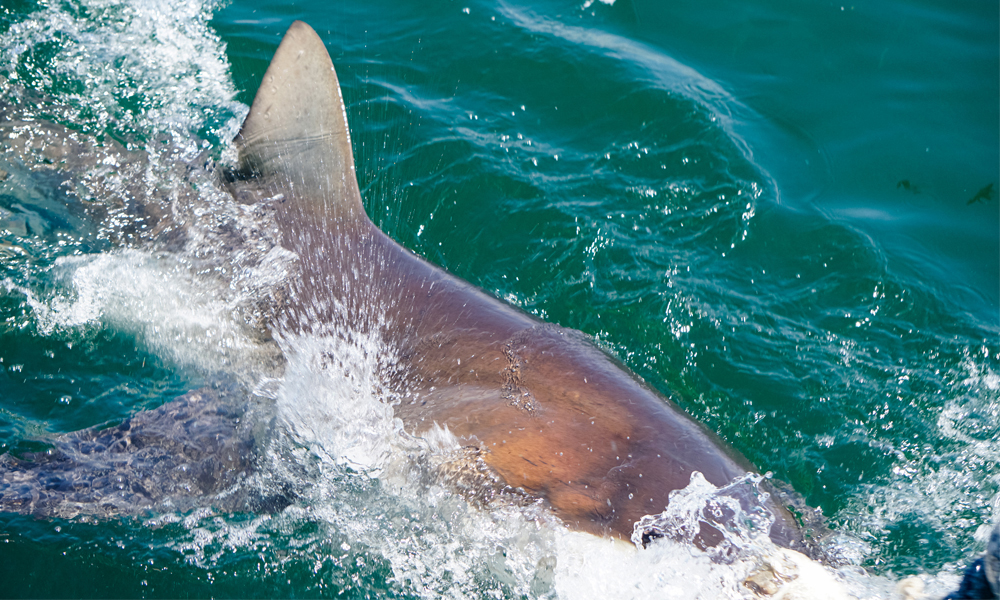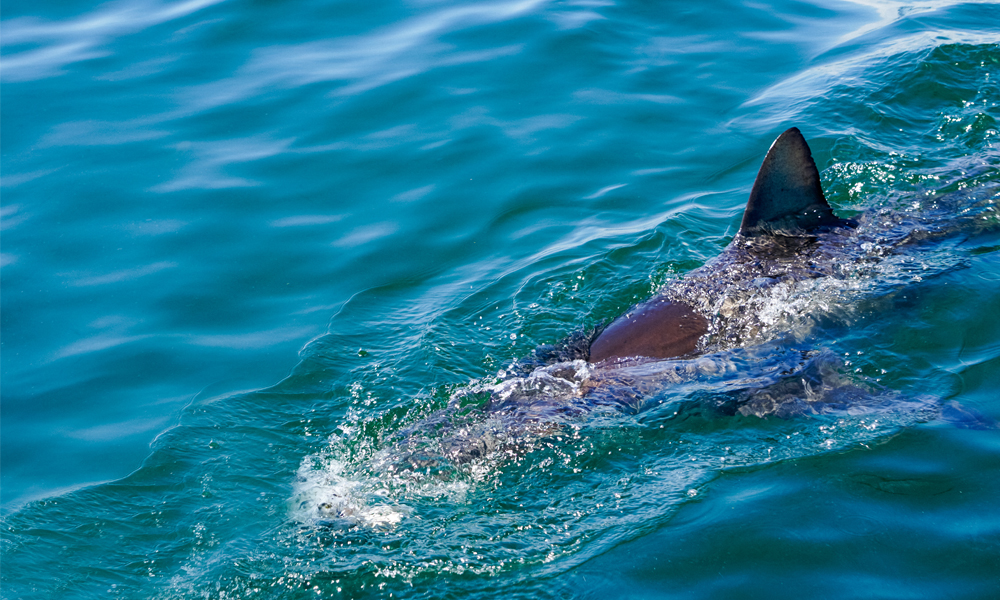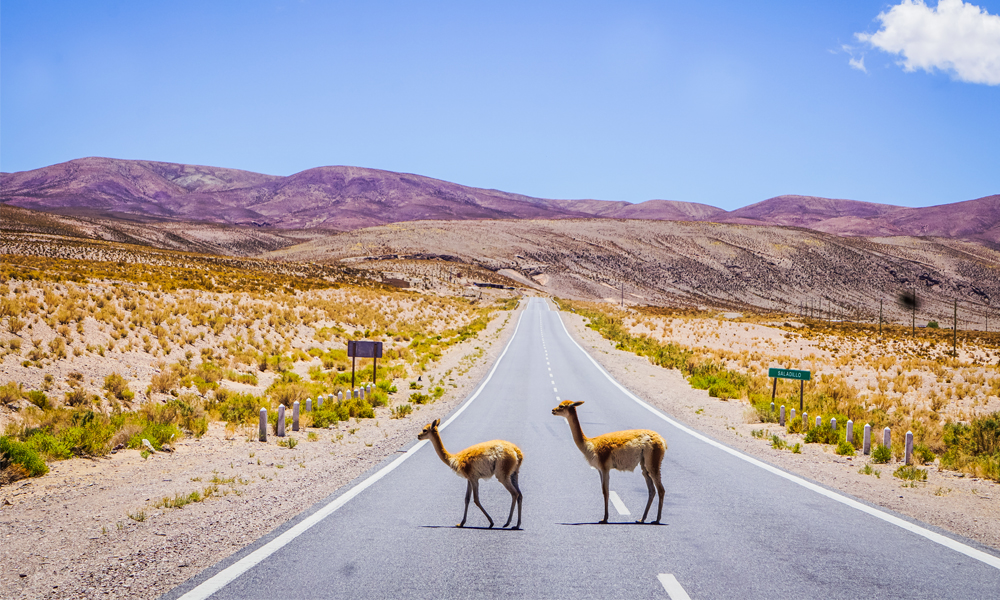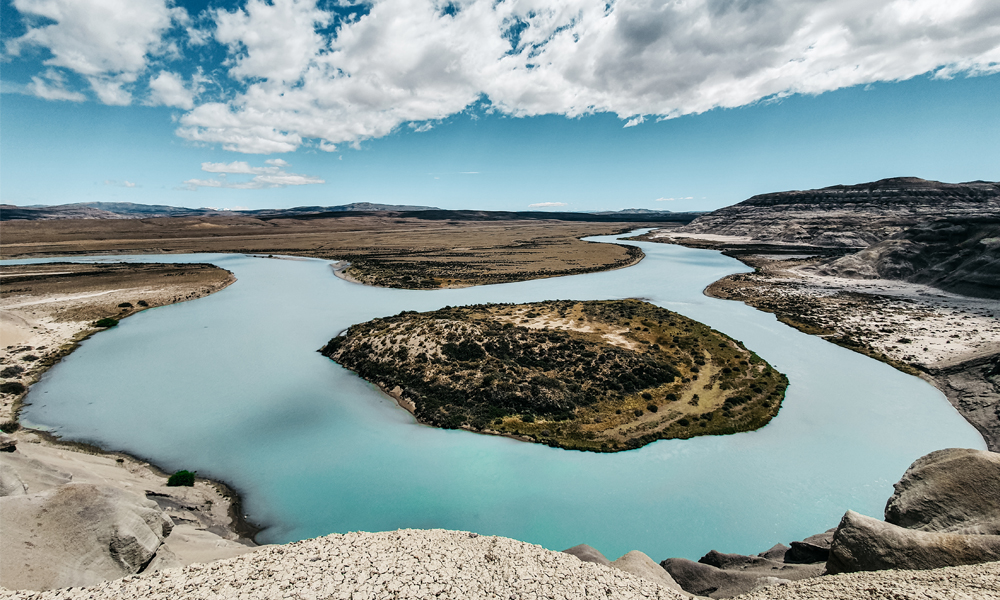We have to admit, sharks are one of the most majestic creatures on earth . They have been given a negative reputation as these man eating cannibals with no control, and we should stay away from them as much as possible. But if you watch a shark swimming without imagining the ‘Jaws’ music, you’ll see that they’re completely misunderstood and they’re just as peaceful as any other fish.
One of the main reasons for booking my trip to Cape Town was because i’d heard it’s one of the best places in the world to see sharks. Gansbaai is a hotspot for these iconic creatures and to be able to see them up close seemed like a dream! I was unaware of the controversy around this before doing it, and after I got back from my trip I questioned how ethical shark cage diving is and is it the right way to see these beautiful creatures?
Eco Tip 14: Follow the eco brick concept and pack as much plastic in one bottle to avoid plastic from being separated into different waste systems
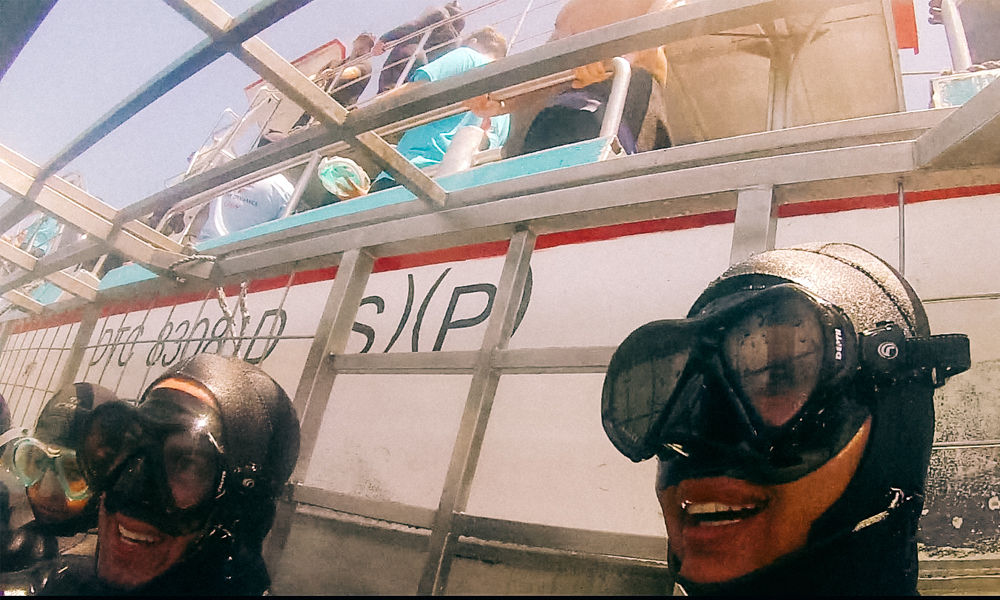
What is shark cage diving?
Shark cage diving has been a disputed topic over the past few years, bringing thousands of tourists to the Motherland with hopes to encounter one of the most feared animals in their natural habitat. The idea is that you get a boat out to the middle of the sea. Most tour operators stay in contact with each other so they’ll send out alerts if there have been any sightings. Once the boat stops, the guide will throw out bait, which would be either dead fish or their blood. You’ll know instantly when they get it out as you won’t be able to ignore the smell! While they’re trying to lure the sharks in, you’ll be asked to put on your wetsuit and mask, then in groups you will lower yourself down into the cage. Once the cage is closed, the guide will shout “down!”, prompting you to put your head underwater as the shark approaches the cage.
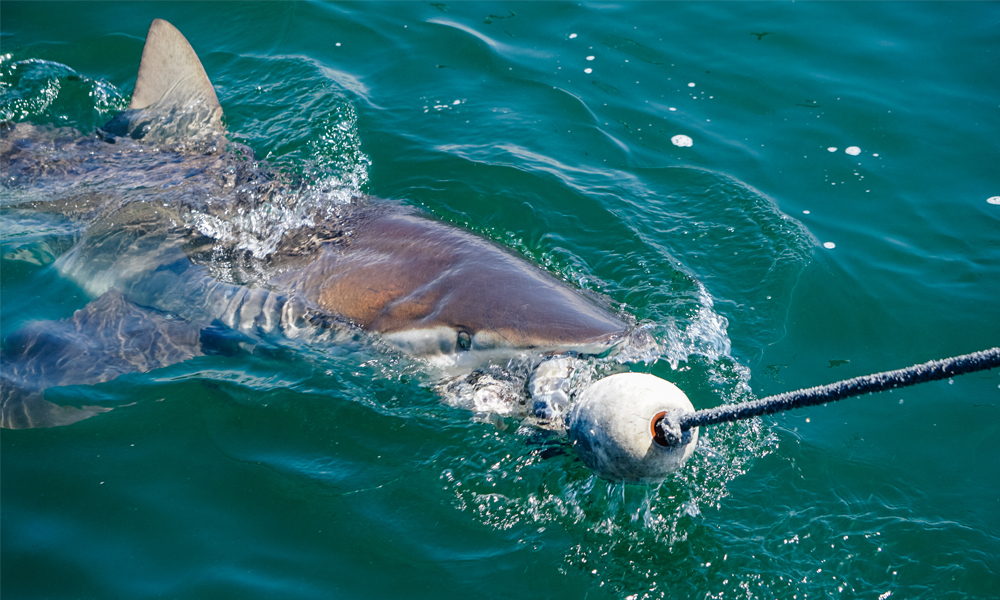
It sounds like an amazing experience, why would I think twice?
After doing some more research on the activity, these are the 5 main points I took away from my reading.
01
Chumming
This is a technique used to attract the sharks to the boat by feeding them. It's debatable whether this is ethical or not, but there have been discussions around whether this might have caused more shark attacks nearer to the shores in other countries as they grow to associate humans and the sound of boats with food.
02
Behavioural changes
A study in 2018 found that sharks act out of character when they're being lured to a boat and are often seen attacking the cages. They're natural timid and curious creatures, so it might not be a deliberate attempt to change their behaviour but it could potentially harm them in the long run.
03
Potential Tourist trap
As much as nearly all of the tour operators claim that they do these tours responsibly, how many of them are actually involved in marine research and conservation?
04
Unsustainable
This can be said about any other boat tour, but the more tourists this activity attracts, the more boats will be required. This will lead to an over populated and polluted area around the sharks.
05
It could harm them
By chumming the sharks and bringing it closer to the boat, they sometimes tend to try and bite the cage and their tail fins sometimes smack it which could cause damage to them.
Learn more in related article: Exploring One Of The Top 10 Sustainable Cities In The World
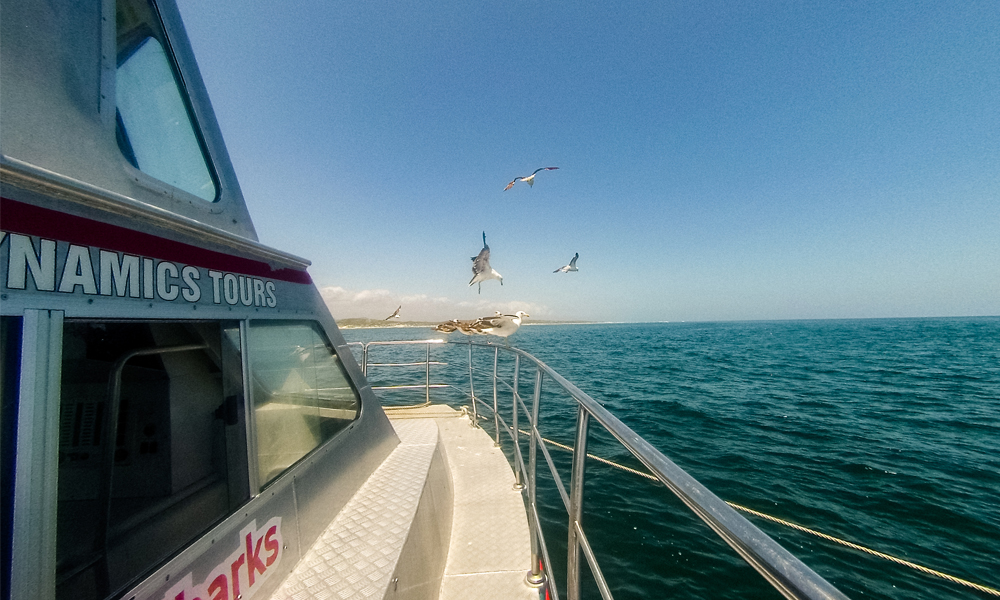
The seagulls couldn't resist the smell!
Should you do it?
This isn’t in any way to discourage you from any activity. It’s purely my personal opinions and to outline the reasons why i’d think twice about shark cage diving again. For me it was an amazing experience, not just the dive itself but also being able to speak with marine biologists on board and get an insight of what they do and how they contribute to the conservation of sharks. If you do decide to do it, make sure the tour operator is sustainable and actually researches sharks. We went with Marine Dynamics who are a team of marine biologists and are well known for conservation and research programmes. They also offer whale and eco tours, and fund the Dyer Island Conservation Trust, which houses injured penguins and seabirds in South Africa, especially endangered African penguins. We paid around £120 each which seems a lot at first but seeing as it does go towards funding the Conservation Trust, the price is can actually be justified.
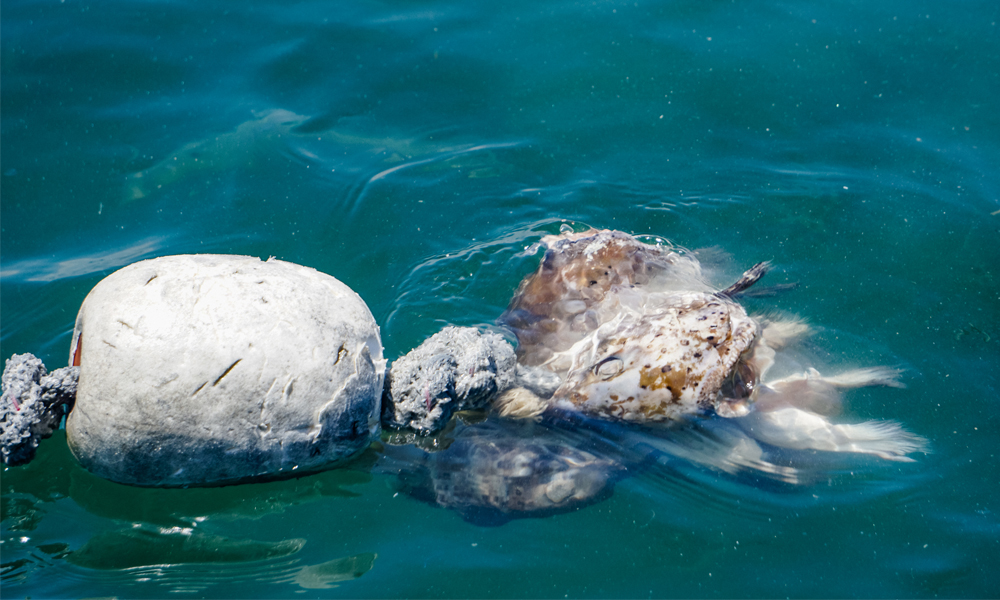
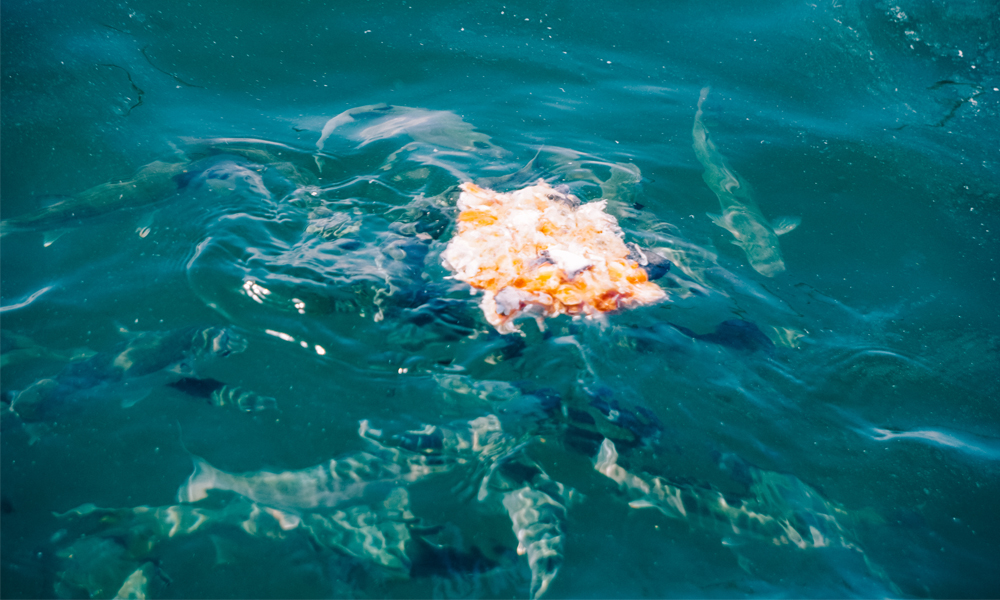
The 'chumming' food that was used
Things to look out for when booking a shark cage dive tour
As one of the most popular activities in Cape Town, it’s no surprise that there’s an abundance in tour operators offering this experience. You need to make sure you’re not going with someone who’s just interested in taking your money and providing you with the most basic of experiences. Here are some tips to avoid this:
Check if it's a reputable company who has a good safety record (check Tripadvisor reviews)
Research whether they do the tour ethically and invest in conservation
Check online pictures from other people or email the company to see if they a large boat to avoid sea sickness (this is very common)
Check out our ‘How to find a sustainable tour operator‘ post to guide you through the steps of finding a sustainable tour worldwide.
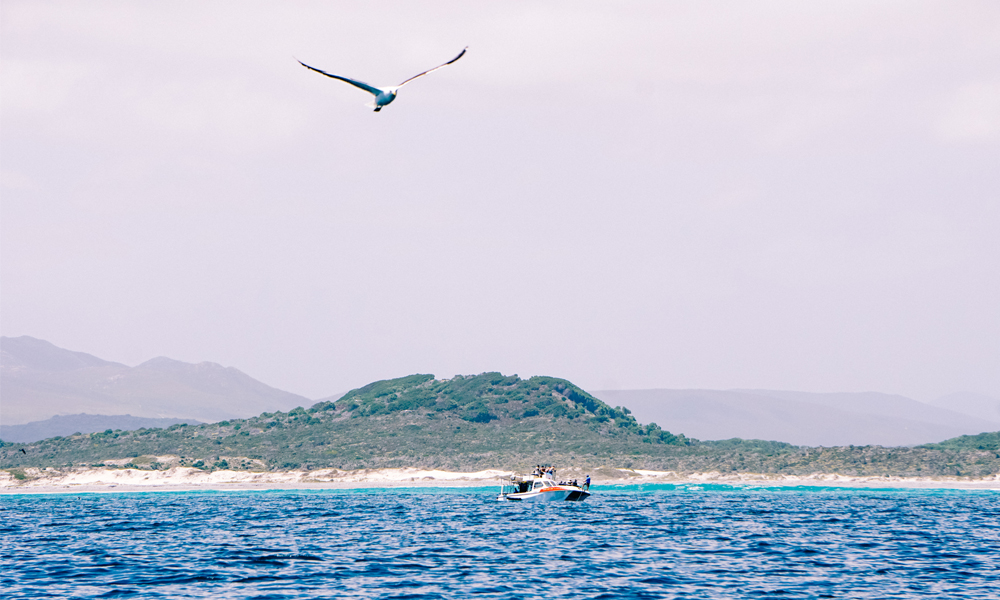
Other Wildlife watching Alternatives
Shark viewing – Several companies do trips to Seal Island for surface only viewing. Sharks are all around there and it’s one of the only places in the world where you can see them breaching
Sunbathe With Penguins – Less than an hour away from Cape Town lies Boulders Beach. Here you’ll find colonies of penguins swimming in the sea and walking around on the sand. They are now being protected and you can watch them from a viewpoint, but they do sometimes come onto the public beach to say hi!
Go On A Safari – Africa is the big mamma of safaris, so there’s no better time to go than while in the Motherland! We stayed in Inverdoorn Game Reserve, which was a short 2 hour drive from Cape Town centre. A safari and a game reserve are the same, except one is government owned and the other is privately owned.
Have you been shark cage diving? What are your thoughts on how ethic it is? Let us know your thoughts in the comments below!


